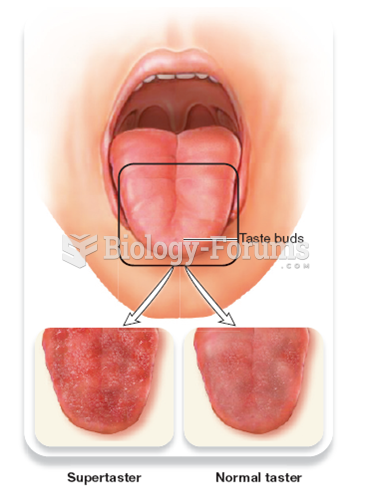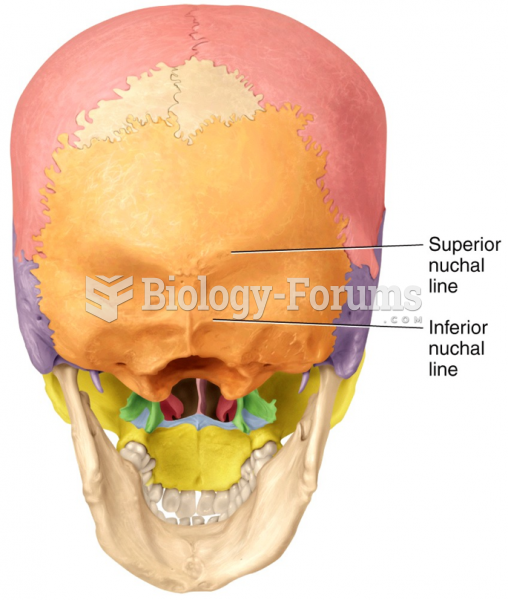|
|
|
Cocaine was isolated in 1860 and first used as a local anesthetic in 1884. Its first clinical use was by Sigmund Freud to wean a patient from morphine addiction. The fictional character Sherlock Holmes was supposed to be addicted to cocaine by injection.
About 3% of all pregnant women will give birth to twins, which is an increase in rate of nearly 60% since the early 1980s.
Though “Krazy Glue” or “Super Glue” has the ability to seal small wounds, it is not recommended for this purpose since it contains many substances that should not enter the body through the skin, and may be harmful.
Certain rare plants containing cyanide include apricot pits and a type of potato called cassava. Fortunately, only chronic or massive ingestion of any of these plants can lead to serious poisoning.
Oliver Wendell Holmes is credited with introducing the words "anesthesia" and "anesthetic" into the English language in 1846.
 EEG recordings showing the differences between normal, absence seizure, and generalized tonic–clonic
EEG recordings showing the differences between normal, absence seizure, and generalized tonic–clonic
 Symporter protein in the loop of Henle: (a) normal reabsorption of inhibition of the Na+, K+, and ...
Symporter protein in the loop of Henle: (a) normal reabsorption of inhibition of the Na+, K+, and ...





